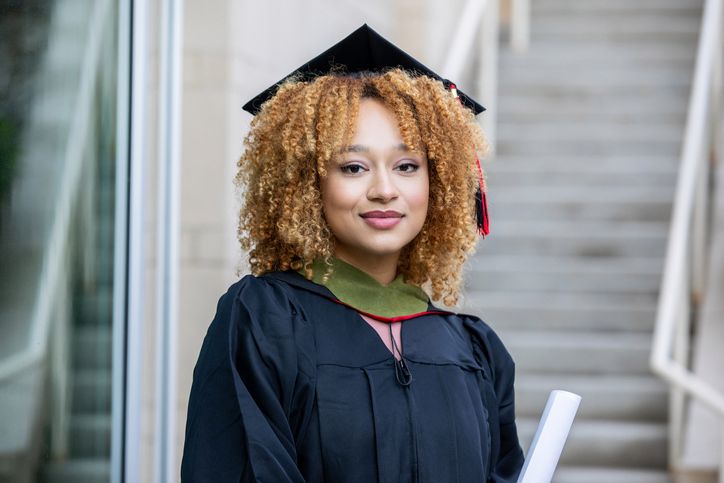
Source: Courtney Hale / Getty
Joe Biden campaigned around relieving up to $50,000 in student debt for qualifying Americans. Since he was elected, he’s backpedaled from that promise and it wasn’t included in the White House budget.
This move affects many college educated Americans but perhaps none more than Black women. According to the Federal Reserve, 45 million borrowers owe $1.7 trillion in student loan debt and the burden of paying back debt after higher education has fallen more on the shoulders of Black women than any other group.
As of 2016, Black women were declared the most educated group in the United States, yet they are still systematically underpaid, earning only 63 cents for every dollar a white man earns.
And recent numbers have confirmed that Black women owe an average of 22 percent more student debt than their white counterparts.
According to a report from the American Association of University Women (AAUW), researchers estimate that after graduation, white women owe $33, 851 in undergraduate loans on average, while Black women owe $41, 466.
The numbers are even more drastic for graduate school students, with white women owing $56, 098 and Black women owing $75, 085.
Kim Crutches, CEO of the AAUW says that while these numbers aren’t surprising they are concerning and pint to the racial wealth gap in this country that “leaves Black families with less money to contribute to higher education.”
Still, Black women are led to higher education in an attempt to earn more money in their fields.
Nicole Smith, the chief economist at the Georgetown Center on Education and the Workforce told CNBC, “Women with master’s degrees make on average what a man with a bachelor’s degree makes and women with bachelor’s degree would make on average what a man with an associate’s degree makes. So in terms of repayment of those loans, you have women who are taking out higher and higher loans and their ability to repay is influenced by their lower wages.”
The effects of this discrepancy in earnings impact the broader Black community as Black women often serve as the head of their households or are the breadwinners in their family structures.
Given the role Black women played in electing the current Biden-Harris administration, The Center for Law and Social Policy believes this same administration and Congress need to return the favor in order to help Black families and the Black economy at large.


